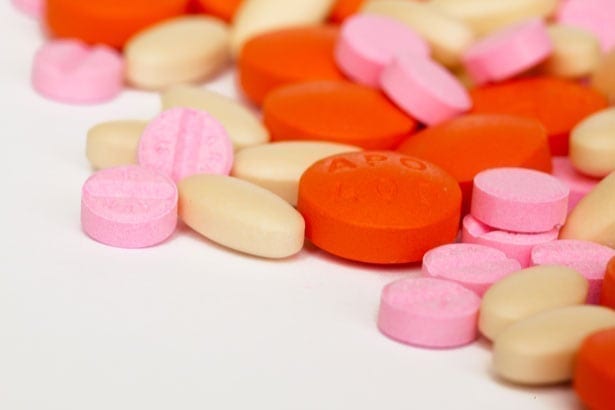Students cramming for exams often turn to Adderall — a drug approved for the treatment of attention deficit hyperactivity disorder, according to a 2018 study that looked at how college students use the prescription drug. What students don’t realize is that this behavior can actually hurt their performance in the long-run, experts say.
“If you want to have a successful company, you have to have a good CEO,” said Lina Begdache, a professor at Binghamton University who studies Adderall abuse, who says the prefrontal cortex is like the brain’s CEO.
“It’s the last part of the brain that matures. So when people abuse Adderall, they’re actually decreasing the maturity of the brain,” she said.
The Adderall abuse problem starts with the lack of information about the drug, Begdache and others say. Students do not realize the long-term effects on their brain and on their studying patterns, according to a college prescription drug study from 2015.
Even more, although many institutions have programs in place to combat these issues, a lot of students do not even know they exist.
Why It’s Newsworthy: Studies suggest that students may be taking last-minute shortcuts to increase their grade point averages.
Easy A’s Now Means Struggles Down The Road
A common belief among students is that taking their friend’s Adderall will help them stay awake and be able to retain information better, but studies on academic performance and Adderall find there is no proof of benefit when used that way.
Conversely, they are damaging the prefrontal cortex, the part of the brain that stores long-term memories, according to Begdache, who began researching Adderall abuse in 2009 when a student asked her about it. She said the brain does not fully develop until age 25, and most college students are between the ages of 18 and 24.
But the dangers don’t end there. Adderall abuse can affect a person’s mood, leading to short-term side effects like paranoia, insomnia and anger. Continuing to abuse the drug can lead to dependency on other drugs such as THC (the chemical in marijuana) and alcohol. Dependency may become so severe that one could not perform daily responsibilities without it.
“When someone consumes unprescribed medications, it can place them at risk for adverse reactions. There can also be risks with consuming counterfeit pills that have been adulterated,” said Kelly Truesdell, assistant director of health promotion and community outreach at the University of Georgia.
So how are people acquiring these so-called “study drugs?” One reason students have such easy access to Adderall might be from the sheer number of people getting diagnosed with ADHD. An estimated 8.1% of American adults aged 18-44 have been diagnosed with ADHD one study found.
Begdache believes it’s easier to acquire to get an ADHD diagnosis than many think. “There’s no gold standard for ADHD diagnosis. I learned from students that they can just fake symptoms and get a prescription,” she said.
Education is Key
Begdache started a program called BSMART to educate students at Binghamton University on Adderall. Her team does research and hosts seminars for students on campus. Students are often shocked that they never learned the information in school, and sometimes even want to join her research team.
Begdache’s program has made a huge impact on her campus. With the information coming from students, and not just adults, the students encourage each other to practice healthier study habits. Her most important tip is practicing good time management.
She says she always tells her students, “Learning doesn’t happen overnight. The brain has to be exposed to information multiple times to make strong connections.”
At UGA, a program at the health center called The Fontaine Center aims to prevent drug and alcohol abuse among students and offers intervention and recovery support. They provide skilled faculty, offer help hotlines, classes and other resources.
The issue is that some students don’t even know the program exists. That was the case for Claire Daniel, who was diagnosed with ADHD as a sophomore in high school. Her therapist back home in Memphis prescribed 30 milligrams of Adderall, which Daniel takes almost every day.
She says she does not give out or sell her medication, but has seen peers use Adderall unprescribed. Daniel encourages programs like The Fontaine Center to improve their communication “so more students can get the help they need,” said Daniel, a third-year student.
A big part of the Adderall abuse issue is that students don’t realize that they are harming their bodies when taking it and don’t know any healthy alternatives.
Truesdell encourages students at UGA to contact professors or visit office hours, schedule an appointment with the Division of Academic Enhancement, or see a wellness coach when struggling with classes, instead of turning to a drug like Adderall.
Marye Stuart Greer is a junior majoring in public relations at the Grady College of Journalism & Mass Communications at the University of Georgia.









Show Comments (3)
Tunnel Vision Goggles
However, studies have shown that using study drugs without a prescription doesn’t enhance academic performance. For example, Adderall will not improve reading comprehension but will allow the user to go over the paragraph multiple times to obtain the answer.
Lucas Thomas
These combination treatments are used to treat attention deficit hyperactivity disorder – ADHD disorder. It functions by adjusting the levels of certain natural compounds in the brain. The class of pharmaceuticals called stimulants is amphetamine/dextroamphetamine. It helps to improve the ability to focus on an activity and solve behavioral problems. You also need to coordinate and develop your communication skills.